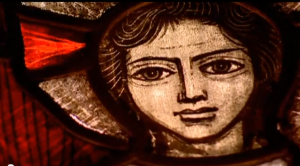 Was Jesus remembered in Islamic tradition? To what end was his memory used? What can be learned of the Jesus from the Qur’an? These are interesting questions particularly in our diverse pluralistic world today; but one to which, admittedly, I’ve given little to no thought. A few months back however I was having a conversation with a colleague and he mentioned that a book called Jesus and the Muslim by Kenneth Cragg was a useful source for information. There are two chapters in the book that deal specifically with Jesus. One is titled “The Quranic Jesus” and the other “Jesus in Muslim Awareness”. I finally got around to reading them. Here’s a provocative statement Cragg makes about Jesus in the Qur’an:
Was Jesus remembered in Islamic tradition? To what end was his memory used? What can be learned of the Jesus from the Qur’an? These are interesting questions particularly in our diverse pluralistic world today; but one to which, admittedly, I’ve given little to no thought. A few months back however I was having a conversation with a colleague and he mentioned that a book called Jesus and the Muslim by Kenneth Cragg was a useful source for information. There are two chapters in the book that deal specifically with Jesus. One is titled “The Quranic Jesus” and the other “Jesus in Muslim Awareness”. I finally got around to reading them. Here’s a provocative statement Cragg makes about Jesus in the Qur’an:
One may study the mind of Islam inclusively in its mind about Jesus, decisive clues being everywhere implicit in how it reads and ‘places’ him within history, theology and faith (42).
The book is not written for a wide readership. The writing style of this book is dense and is demanding. Cragg seems intent on making the reader work to comprehend. But I persevered and I’m glad I did because Cragg does provide quite a useful introduction to the topic. What is very useful indeed is that Cragg presents all the texts in the Qur’an which make reference to Jesus. It may come as a surprise to some that Jesus appears in the pages of the Qur’an, although not very much. Furthermore there is no direct quotation or citation from the Gospels and no narrative descriptions of Jesus’ ministry. Here are the details:
- Jesus is mentioned in 90 verses in the Qur’an.
- No less than 64 of those 90 belong to just two extended, and partly duplicated, nativity stories.
- So in addition to the duplicate nativity stories only 26 verses present the rest of what the Qur’an says about Jesus.
Cragg observes that the Qur’an is not interested in the historical Jesus. It has put Jesus and his circumstances in the shape of Muhammad’s own experiences and controversies in his time. Cragg notes, “this abstracts his [Jesus] whole story from the kind of setting which obtained in the Galilean and Jerusalem theatre” (15). And again he quips, “At times it is difficult to be sure whether a Jesus controversy has not passed over into a Muhammad controversy” (26).
Here are some things I learned about the Jesus of the Qur’an:
- The Christological controversies within Christianity have invalidated the Christian claim of Divine identity for Jesus. Because of Islam’s understanding of the nature of revelation as guaranteed, the confusion in delineating the revelation in Jesus is suspect.
- Qur’an affirms Jesus identity as a servant, but in doing so it disqualifies him as being “Son of God” because the nature of a servant’s status is unfit for the divine. Jesus could never be the Son, because he is the servant.
- Qur’an is silent on the actual course of Jesus’ life. There is no interest in Jesus’ narrative. There is interest only with the birth of Jesus.
- Jesus’ anointing, his “Messiahship”, is understood to be a limited statement of his equipping and commissioning for the tasks of prophecy and teaching.
- The Qur’an strongly and consistently affirms the virginal conception of Jesus. But it is a claim that “stands alone”, it doesn’t lead to something like the incarnation. Rather the quality of Jesus birth point to both Mary and Jesus as “signs” . The development of this within the tradition is a doectic-style doctrine of a flesh that is wholly spiritual.
- Mary is venerated in the Qur’an. Jesus is often referred to as the “son of Mary”.
- Jesus’ death is denied. His death was only apparent. It is believed to be a false story created by the disciples (cf. Matt 28).
- The infant Jesus talks (Surah 5:109-20).
- Everything Jesus was and did was “by leave or authority of God”.
- Jesus brought a refreshing emancipation from the tyranny of legalism.
- Jesus is given a positive role in the economy of divine revelation. Jesus is a messenger and teacher who prepares the way for Muhammad, he announces the coming of Muhammad. Little more here is needed. Cragg points out that it is Muhammad’s “manifest success”, in contrast to Jesus’ lack of success, which constitutes the finality of the providence of God (43). Cragg states, “the ‘manifest victory’ held to have eventuated within original Islam become the yardstick by which the career of Jesus must be measured” (51). This leads to the conclusion:
- An incompleteness is attached to Jesus’ messiahship.
- Jesus’ spirituality is “other worldly” and eschatological. As such it is seen as incomplete or insufficient. Muhammad provides the realism.
Cragg summarizes: There is, for the Muslim, an exceptionality about Jesus, ranking him in uniqueness with Adam alone. He calls it a Christology outside of theology versus a Christology inside theology as in Christianity (67).
Here’s an interesting documentary on the subject.
http://www.youtube.com/watch?v=yeR_fU1acjM









